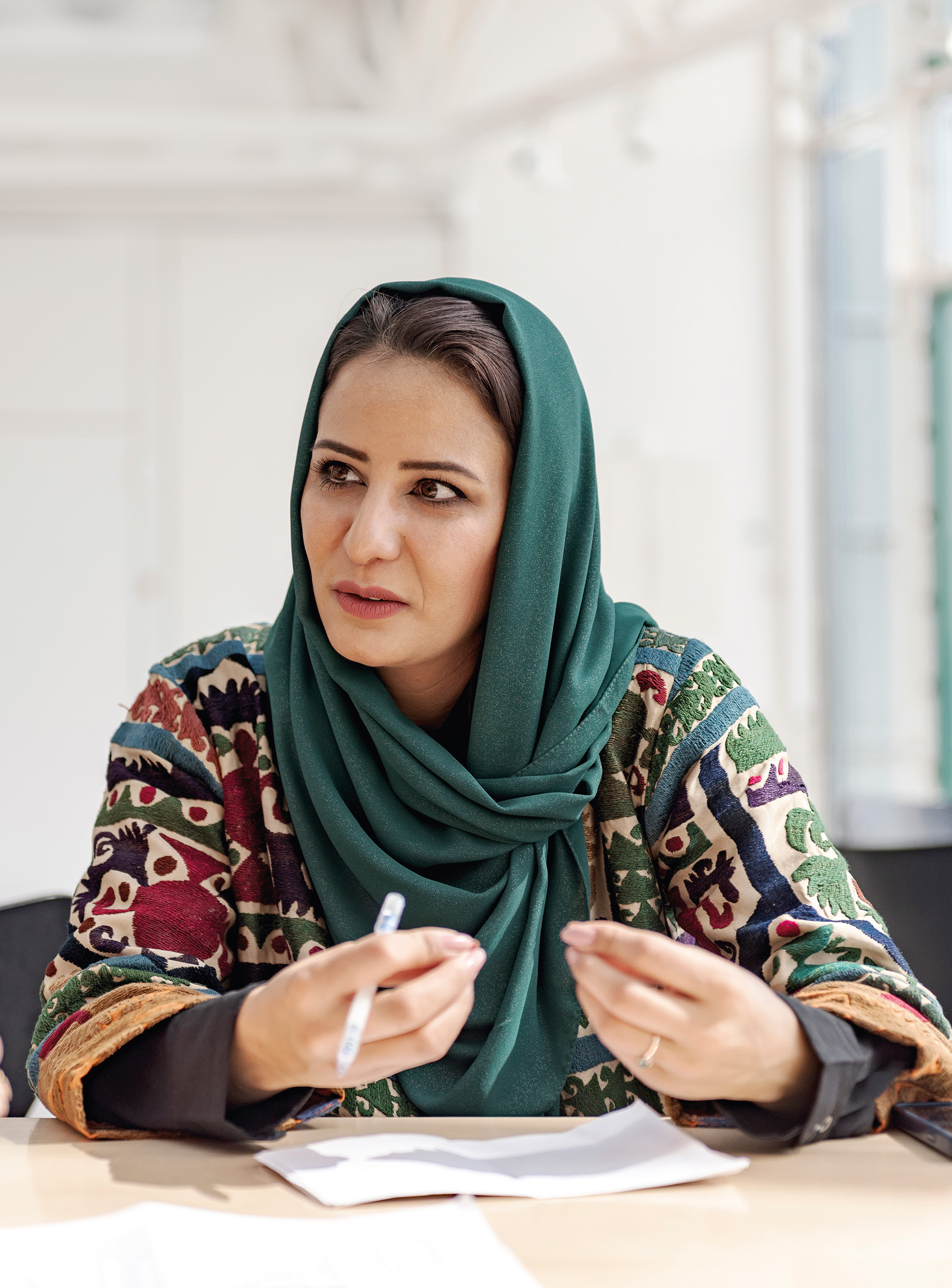For twelve years, Negina Yari has been fighting for women's rights in her home country. With her organisation, she has succeeded in helping hundreds of women.
Ms. Yari, you had to leave your home country after the Taliban took power. Since then, you have been organizing aid campaigns from exile in Germany. How is that at all possible?
I set priorities. First, I work online with women in Afghanistan and try to give them a voice at the international level. That conditions my second priority, which is about pushing the international community to keep its promises.
What is that about, for example?
One important task is to enable girls and women in Afghanistan to educate themselves. Currently, girls are only allowed to attend school up to the sixth grade, never mind studying later. In rural areas, women are only allowed to leave the house at the side of a male relative; forced marriages and child marriages are taking place more and more frequently, and there is no court to which affected women can appeal. They basically no longer have the right to say no. This is a huge setback compared to what was achieved two decades ago. That's why I'm constantly in online contact with women on the ground, informing international donors and UN agencies about the situation of women without rights who are prisoners in their own homes.
No woman is born a human rights activist. So how did you evolve into a women's activist?
I grew up during the time of the first Taliban regime and had to disguise myself as a boy in order to be allowed to attend school. Later, I even managed to get my master's degree in business administration, which influenced my work as a lawyer. For a year and a half after the Taliban came to power, I still practised my profession locally; then I had to leave my country for security reasons.
How can one picture this work?
I have always been convinced that women can run their own businesses. Proof of this is a project that employs hundreds of women in my home country, most of whom grew up poor and uneducated in the provinces. One task was to start a small business selling dried fruit. We trained them to determine demand, market the product and manage the income. It's a miracle: the business, which to this day involves 400 women, is still going strong.
Can you cite other successes besides projects like these?
One of the most important components of our activities is education, which enables women to raise their awareness of the injustice of forced marriages. To this end, we run online courses which last nine months. 400 women are currently learning to use English and computers, among other things. We supply them with iPads for this and a website where all the videos of the lessons can be accessed. Our second area is humanitarian aid for women and girls.
What does this aid look like in specific terms?
We are building a solidarity network among women in Afghanistan. They exchange ideas, support each other and apply for financial support for humanitarian projects. More than 25 per cent of our actions are now carried out by female volunteers on the ground. Once we have proven ourselves as helpers, trust is built up. Word gets around and helps to bring about a change for the better throughout the country.
Are you really alone in your commitment? Is enough attention being paid to your country's problems around the world?
The international community is indeed too passive. That could be due to the war in Ukraine or the uncertain state of the global economy. Nevertheless, this is not a compelling reason to ignore the voices of the women in my country.
Shouldn't Islamic countries stand together and play a role in your fight for women's rights in Afghanistan? Especially the Organisation of Islamic Cooperation (OIC) with its 56 member states....
Yes, they should! But unfortunately, the leaders of the OIC only make non-binding statements. This raises the question of why women in their countries have the right to work and education and those in Afghanistan do not. An important factor in this matter could be spiritual decision-makers in Afghanistan itself. But the educated elders of the mosques and communities fear that they will quickly come under political pressure if they raise their voices on this issue.
Despite all this adversity, do you hope to return to your homeland at some point?
There is always a hope. I am sure that with everything we have built up to now, it will be possible to create a civil society. I believe that this solution involves inclusive and democratic development. It will not occur in the near future, but it is coming. The commitment of our activists cannot be stopped, no matter what happens.
Even if women don't have a voice in your homeland?
For that, many educated and active women abroad are raising their voices for our country and demanding accountability. I fight with them not only for the rights of women in my home country, but for all women living in crisis regions. Wherever there is war and terror, women pay the highest price, have to abandon education and professions, take care of the family. And remain silent.
PROTECTION PROGRAMMES OF THE IFA - INSTITUTE FOR FOREIGN RELATIONS
The ifa - Institute for Foreign Relations is committed to its protection programmes for human rights defenders and artists. Since 2022, the Elisabeth Selbert Initiative, together with host organisations, has provided a safe space for human rights defenders at risk to recuperate, work through trauma, exchange expertise and network. It also brought Negina Yari from the danger zone to Munich. The Martin Roth Initiative, together with the Goethe-Institut, supports artists and cultural workers at risk by providing temporary protective stays in Germany or in third countries with a large network of national as well as international cultural institutions.



